Meet the artist queering AI technology
Artificial intelligence is known to replicate the gender and racial biases of its engineers. In Queering the Dataset, artist Jake Elwes hacks facial recognition technology to ask if AI can be used to explore and celebrate queer identities, instead of marginalising them. Eve Watling takes a closer look
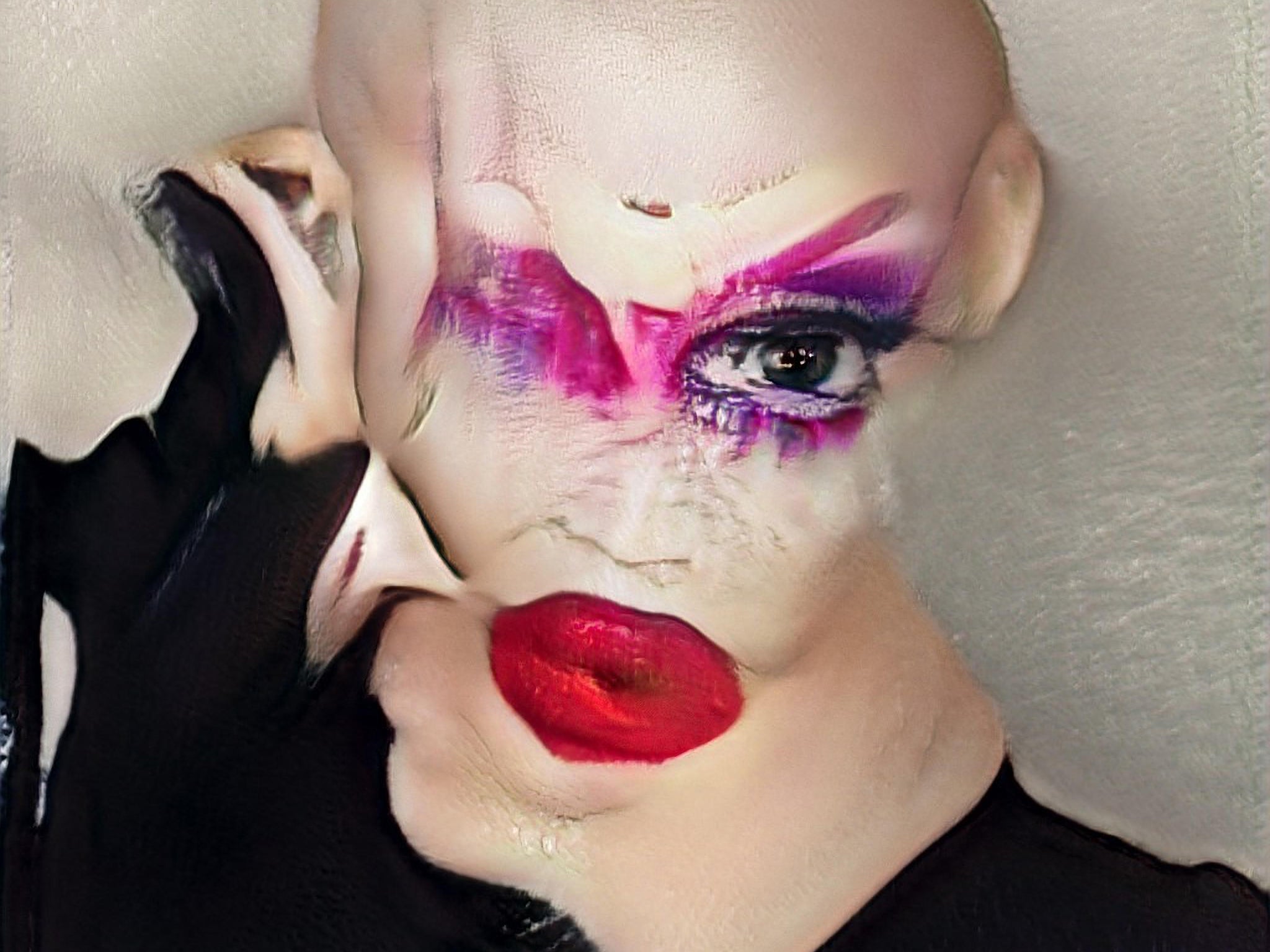
Your support helps us to tell the story
From reproductive rights to climate change to Big Tech, The Independent is on the ground when the story is developing. Whether it's investigating the financials of Elon Musk's pro-Trump PAC or producing our latest documentary, 'The A Word', which shines a light on the American women fighting for reproductive rights, we know how important it is to parse out the facts from the messaging.
At such a critical moment in US history, we need reporters on the ground. Your donation allows us to keep sending journalists to speak to both sides of the story.
The Independent is trusted by Americans across the entire political spectrum. And unlike many other quality news outlets, we choose not to lock Americans out of our reporting and analysis with paywalls. We believe quality journalism should be available to everyone, paid for by those who can afford it.
Your support makes all the difference.On a screen a pair of big, dark-lashed eyes grow out from amorphous smudges of orange and blue. A nose follows, and then a heavily lipsticked mouth, with the recognisably exaggerated aesthetic of a drag queen. But before the face takes a complete form it has already begun to dissolve into something – or someone – else.
Drag performance playfully exaggerates the human form. But these faces take drag’s contortions one step further. The faces in the video, called Queering the Dataset, are all deepfakes generated by a hacked artificial intelligence (AI) system. They were made to challenge the biases that have been built into many of the most commonly used facial recognition technologies.
Jake Elwes, a London-based artist, studied at Slade School of Fine Art. He was introduced to the city’s drag scene by his boyfriend, who holds a PhD in Drag Performance. A long-time programmer, he began integrating both AI and drag performance into his art practice a few years ago. “There’s so much wrapped up in terms of philosophy and ethical considerations and power structures with AI,” he says. “As an artist, I can take a critical step back and create something that’s not functional – hacking the technology and finding poetry in what it wasn’t intended to do.”
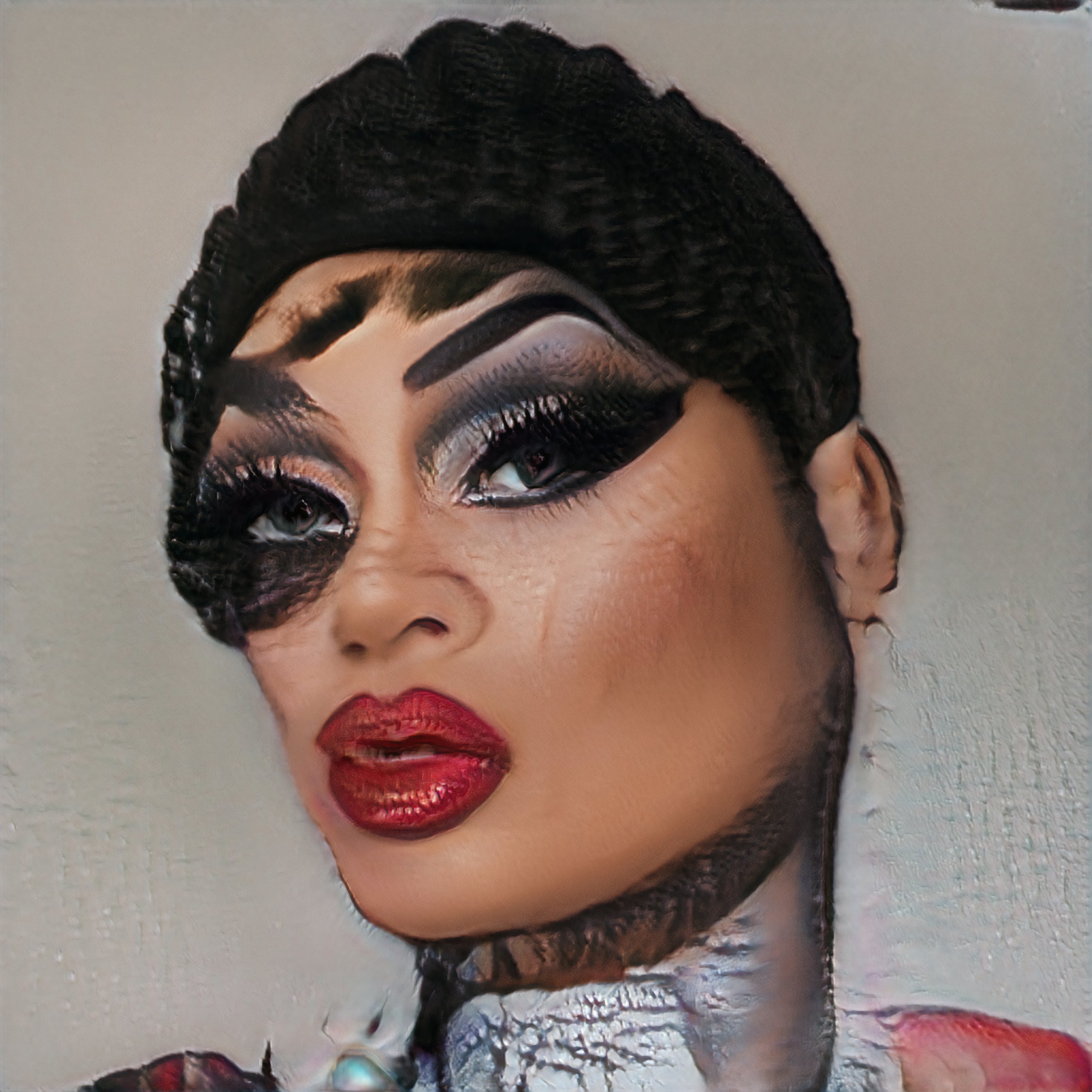
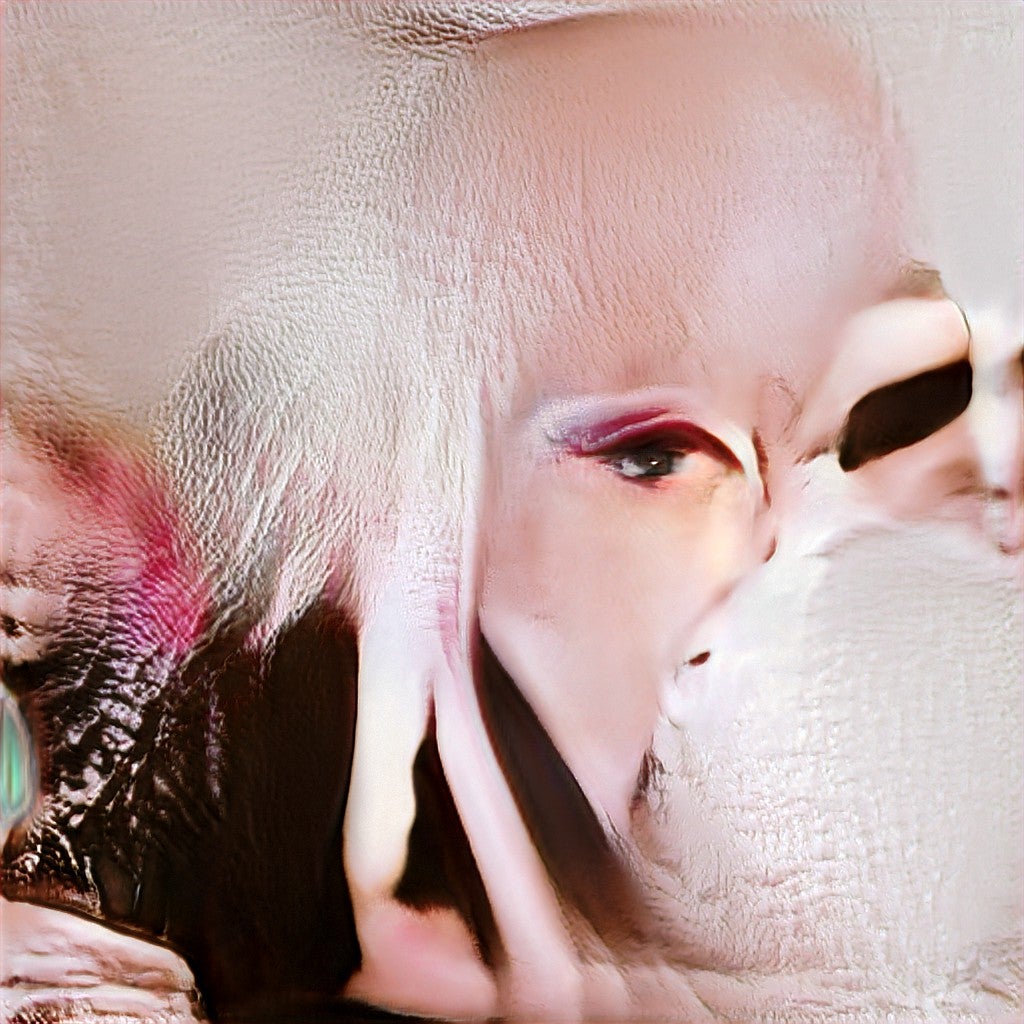
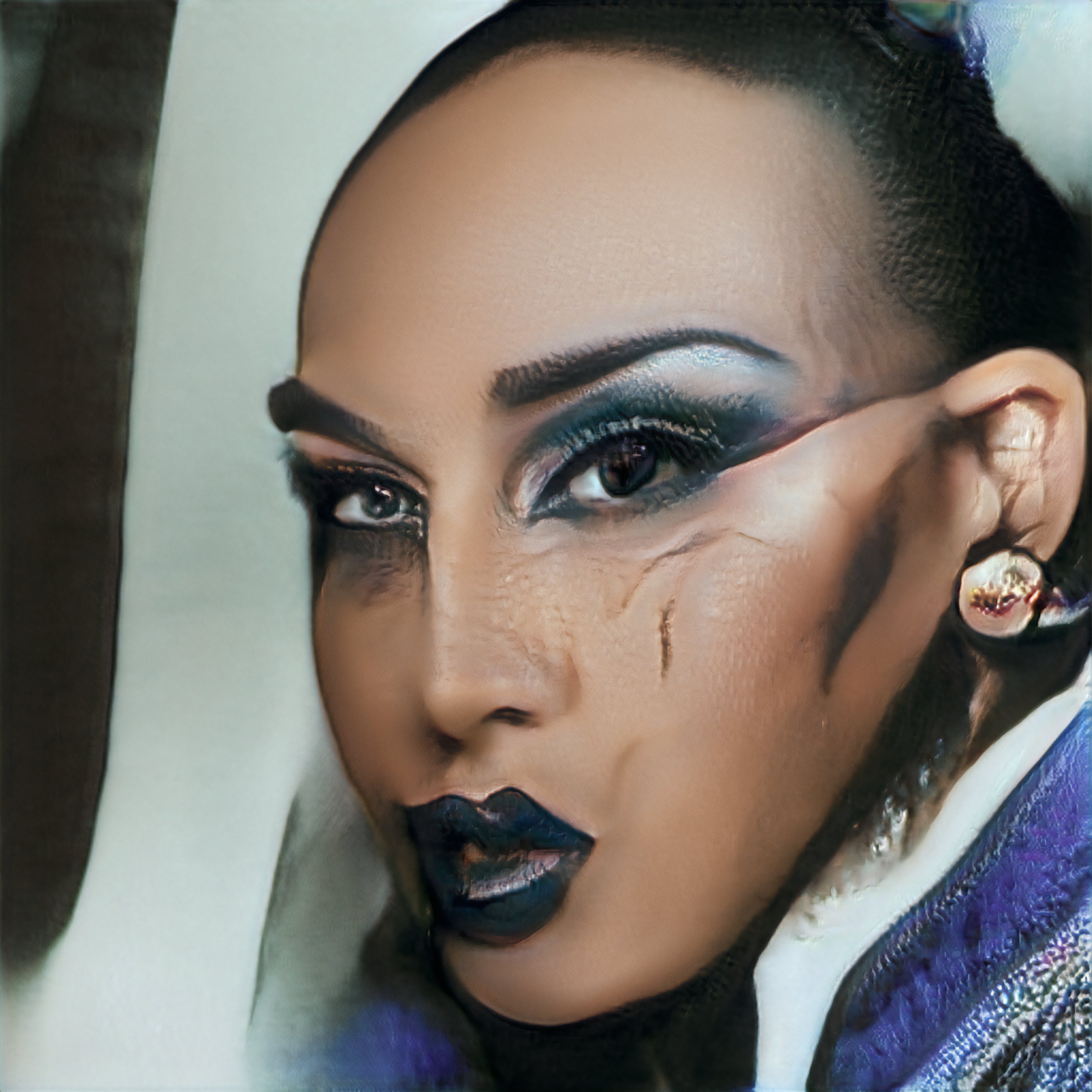
The Zizi project – the name references both the gender-neutral ze pronoun and the z vector – began in 2019 as a response to algorithmic bias. That’s the phenomenon in which AI technologies, including facial recognition, take on the unconscious biases of their programmers, who tend to be white men.
Machine learning systems for facial recognition are trained on datasets of thousands of faces selected by these programmers. Studies have found that these datasets tend to include more white, male faces and so AI is trained to better recognise white, male features. As a result, facial recognition technology can struggle to recognise black women or transgender people. “There’s been research looking at how trans people are often misgendered by these systems and how that reinforces oppression against marginalised communities,” says Elwes.
For Queering the Dataset, the first part of the Zizi project, Elwes took an open-sourced generative adversarial network (GAN), a type of machine learning system. The GAN had originally been trained on 70,000 faces collected in a dataset called Flickr-Faces-HQ Dataset (FFHQ), which is commonly used in facial recognition. He then added in his own dataset of 1,000 photos of drag kings and queens, and asked it to create new simulacra faces, known as deepfakes.
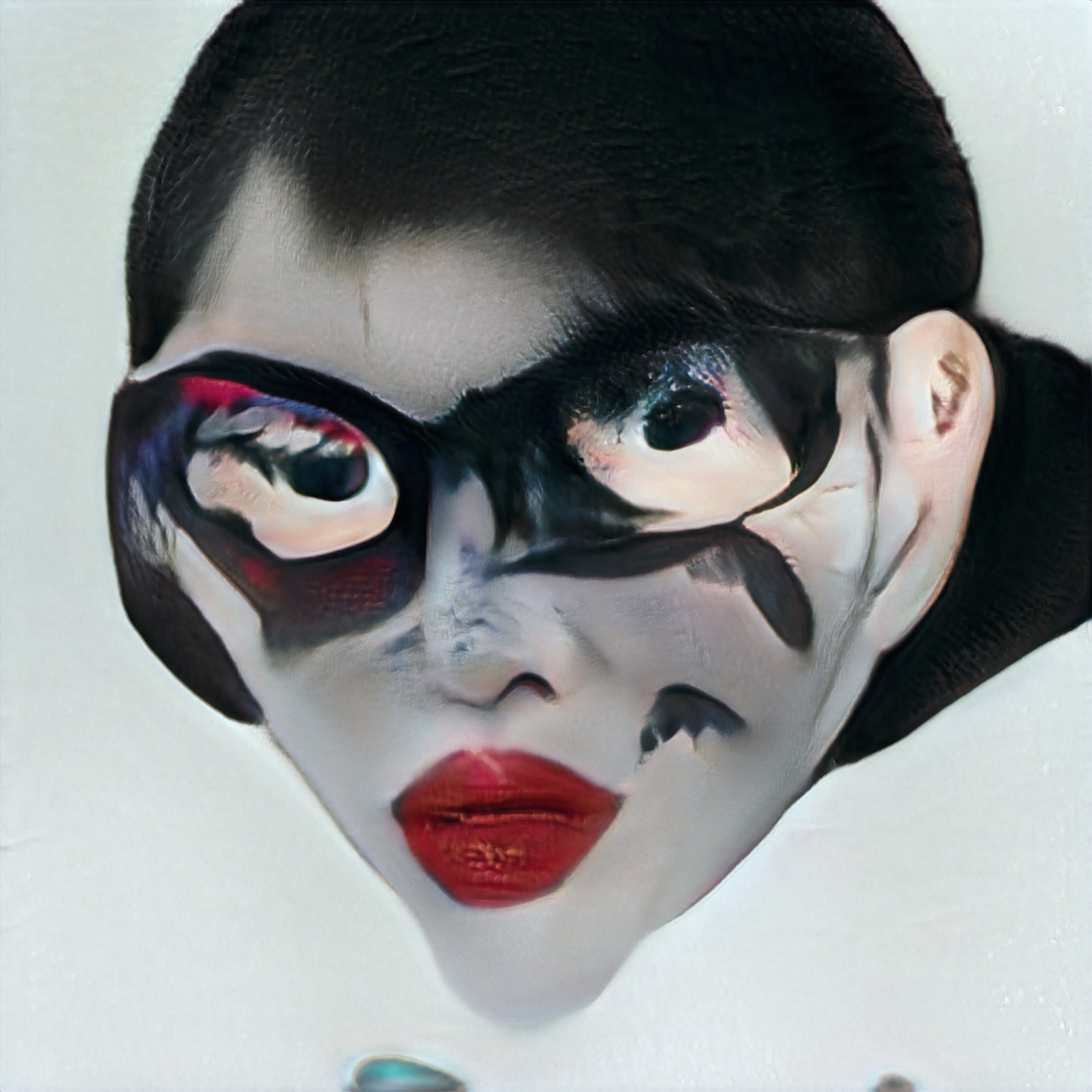
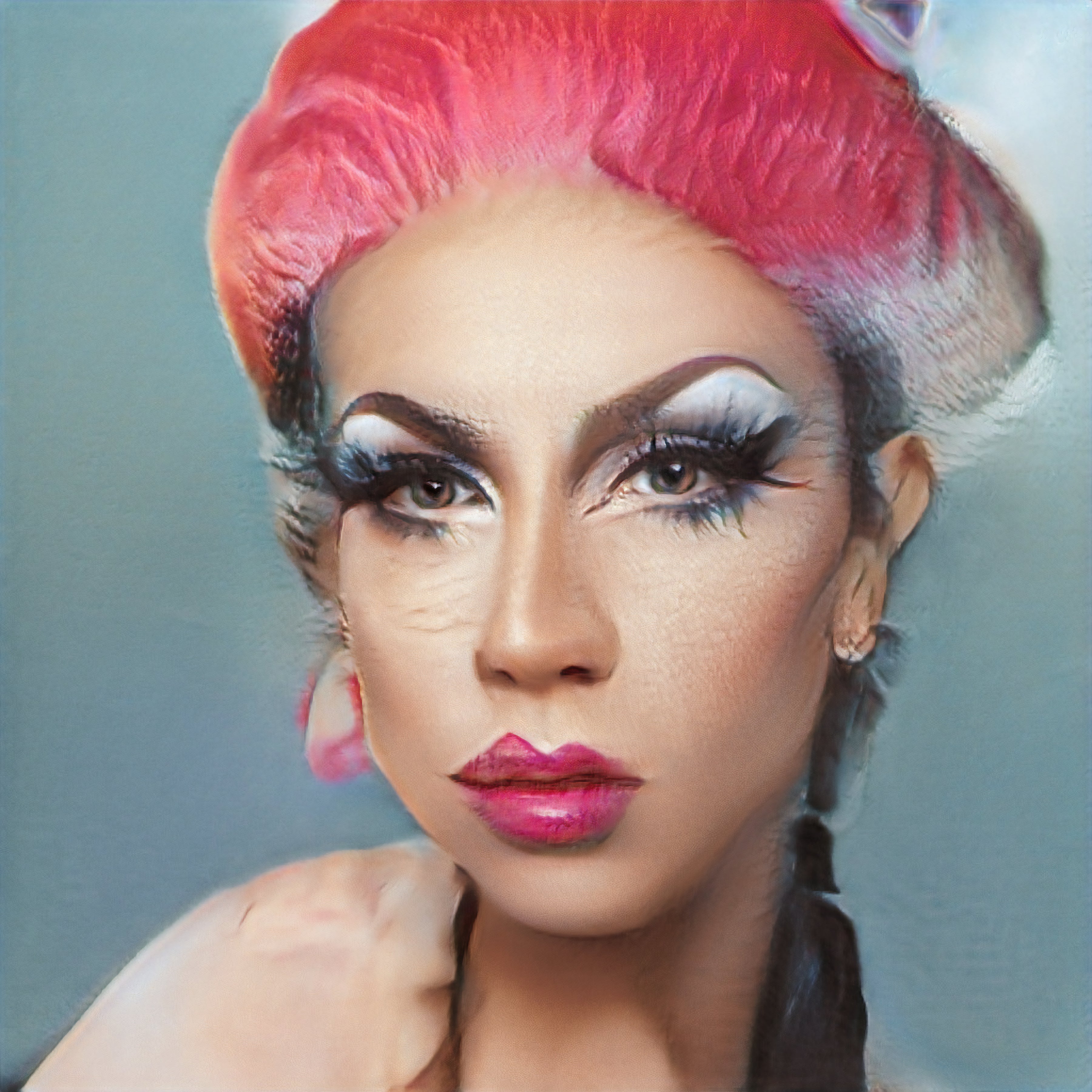
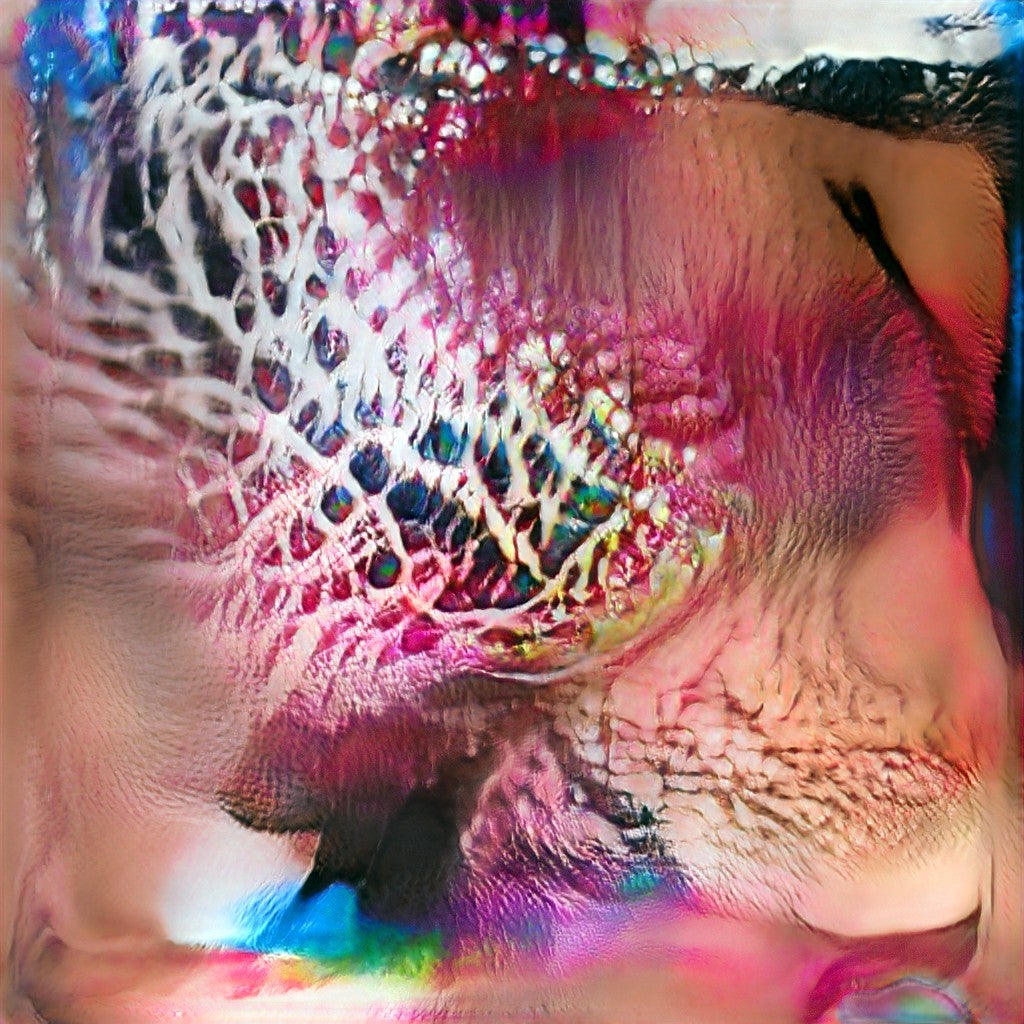
“Just that addition of 1,000 photos completely changed the whole network,” says Elwes. Instead of realistic, normative-looking human faces, the network began generating faces that were exaggerated and strange, full of glitches and quirks. It at once exposes the algorithm’s shortcomings in being able to see and make gender non-conforming faces, and creates a beautiful, eerie tribute to the drag aesthetic.
Deepfake technology aims to be as imperceptible as possible compared to drag performance, which seeks to exaggerate. Drag performance is deeply imaginative and expressive, while AI generation is automatic. Coding language is binary, while human gender expression is multifaceted. Queering the Dataset clashes these two opposing modes. “It really confuses the AI,” says Elwes. “That’s the idea of queering the dataset, moving it into a space of otherness away from normative identities.”
By taking an already existing open-source algorithm and repurposing it, Elwes sees his work in the lineage of conceptual art and readymades, a descendent of Nam June Paik manipulating a TV set with a magnet to produce his own distortions. He is wary of artists using AI to mimic previous art forms, such as painting, rather than letting the technology find its own expression. “A lot of artists in this field come from engineering backgrounds,” he says. “They’re not necessarily thinking that critically about what they’re doing. So there are a lot of AI filters now that can turn photos into a Van Gogh or whatever.”
“I find that sort of thing very derivative. It’s like trying to prove this new media is a valid art form by going back to painting. It’s exactly what they did in the early days of photography when they tried to set up Renaissance paintings in front of the camera. I’m interested in going beyond that and really looking into the process, materiality and the politics of this technology in itself.”
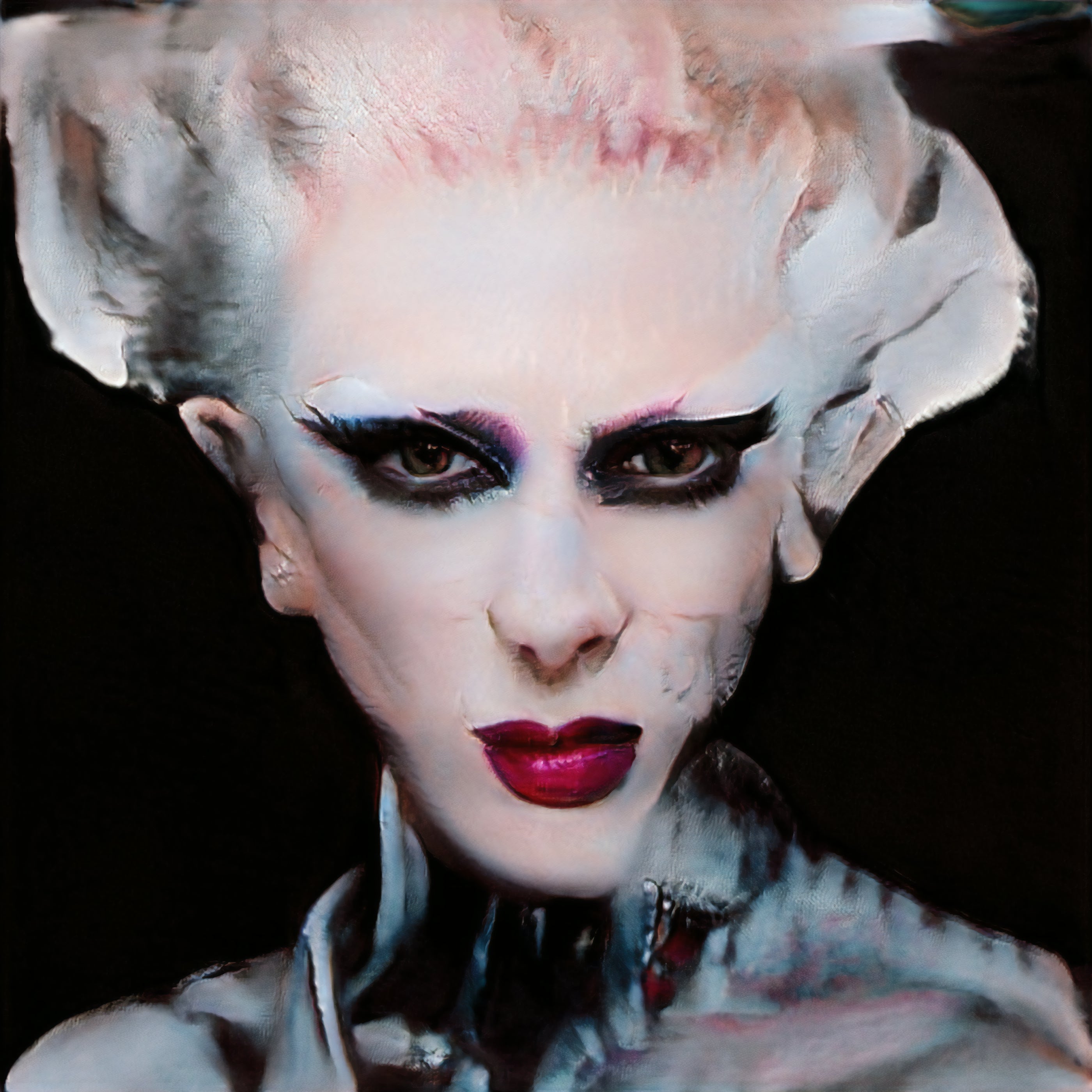
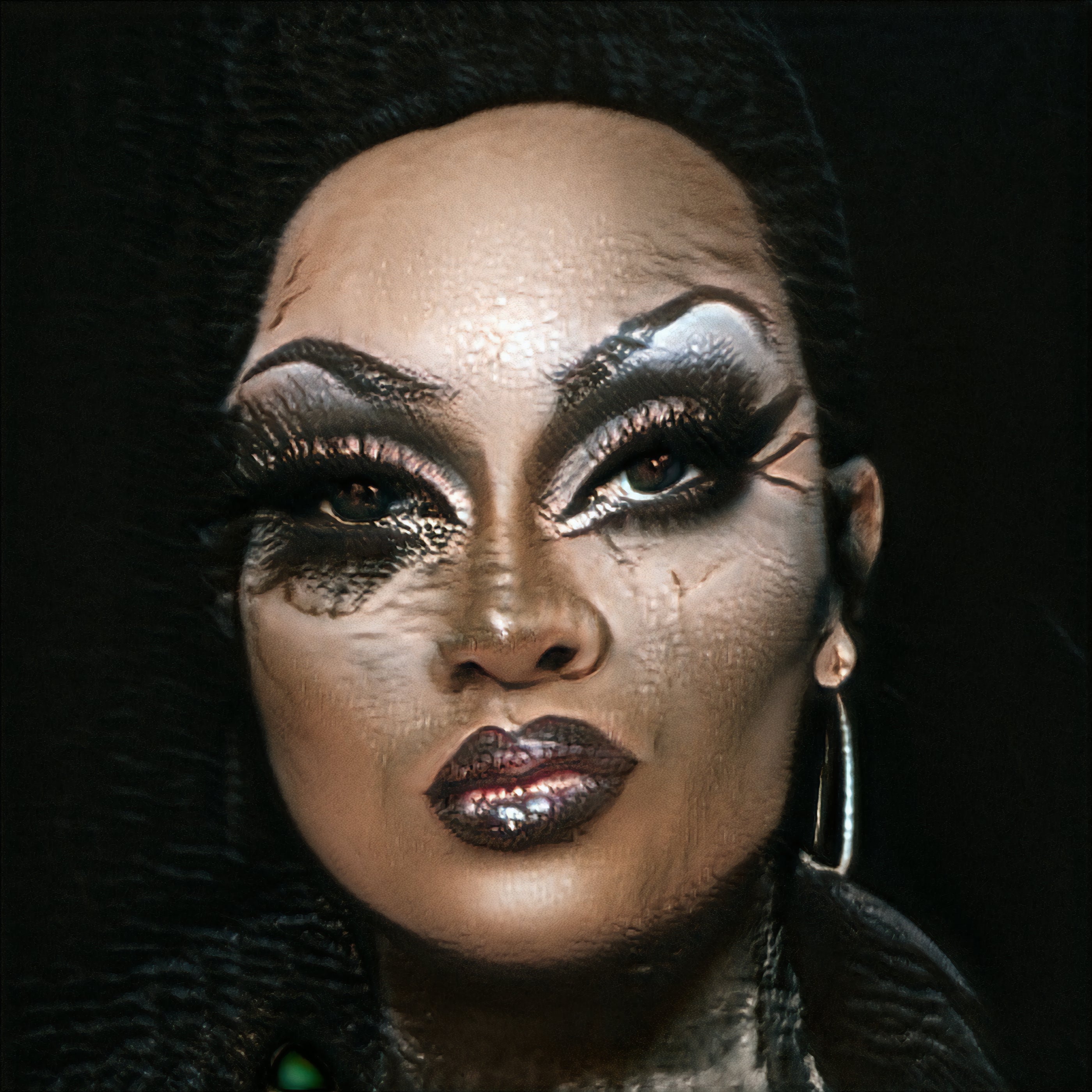
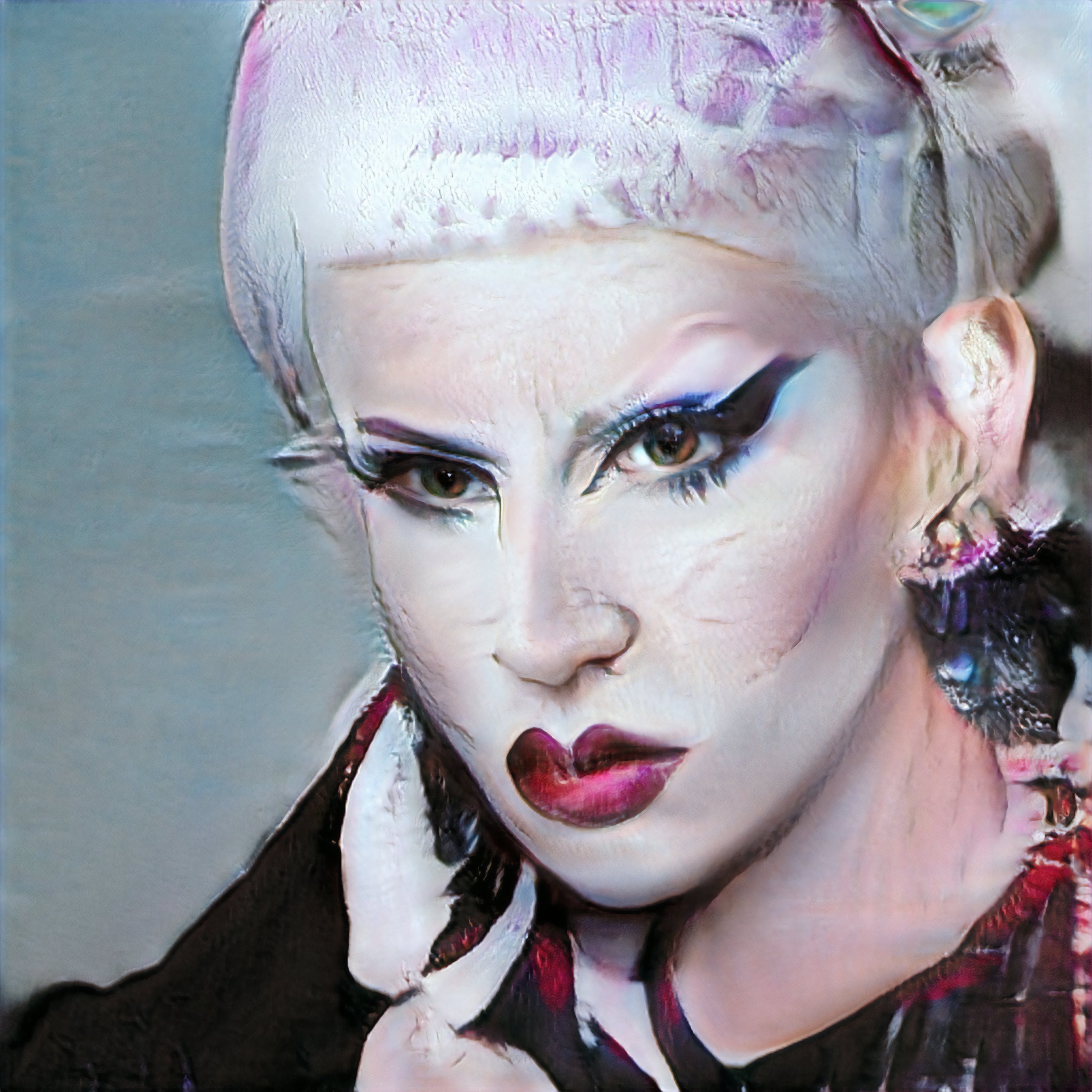
Humour is essential to the project, too. After Queering the Dataset, “I got really interested in how I could bring onboard real human drag performers,” he says. To continue the project, he and his collaborator, a drag queen confusingly called Me, cast 13 different performers and trained an AI system on their bodies and movements, creating a deepfake doppelganger of each performer.
In the web piece Zizi and Me, the drag queen Me and the AI clone sing a tongue-in-cheek duet of Anything You Can Do I Can Do Better from the musical Annie Get Your Gun. “It’s a joke about the belief that AI will come and take our jobs – which I don’t really believe, it’s actually meant to be a bit cynical,” says Elwes. The drag performers are fascinated by their AI counterparts, especially when they glitch and break down – sometimes the AI drag artist’s head falls off, or it melts into a puddle. “The performers were using it to think about how they can elevate their own drag,” says Elwes.
Deepfake technology is often used in exploitative ways – manipulating a politician or a celebrity to say something they didn’t actually say, or to create fake porn of a person who hasn’t consented to their likeness being used. As with facial recognition, it was important for Elwes to use these new technologies in a way that was celebratory rather than degrading. “It was so important to think about consent and casting diversity to try and make it really inclusive, using drag kings and drag queens, different genders and races and create our own dataset and our own system which celebrates drag performance,” he says.
Although he wants to address biases in AI systems, he acknowledges that it could be a good thing that certain populations aren’t recognised by facial recognition software considering its potential for harmful or abusive use. “We are very much safeguarding our dataset – we don’t want to share it,” he says. “The whole thing around consent and around it being protected, not allowing someone to come and control these drag bodies, because again that moves into exploitation.”
He hopes Zizi will open people’s eyes to the potentials of this still-new technology. “This project has a lot of joy and play in it,” he says. “I think a lot of artists analysing AI are doing it in a very serious, sterile, quite dystopic way. Drag is a perfect way of addressing quite serious political and social issues and making them accessible to a much wider audience.”
Zizi – Queering the Dataset by Jake Elwes is on display at The Gazell.io Project Space until 14 August. Tickets for Zizi & Me (& Jake) – A Night of Deepfake Drag on 29 July are available here
Join our commenting forum
Join thought-provoking conversations, follow other Independent readers and see their replies
Comments